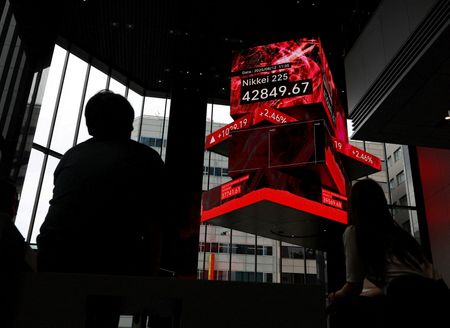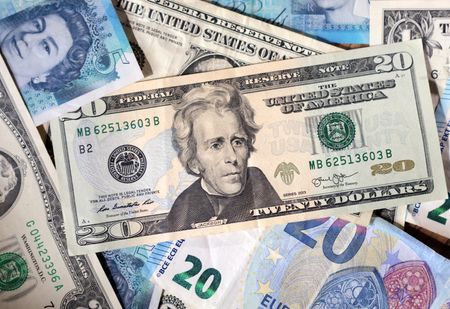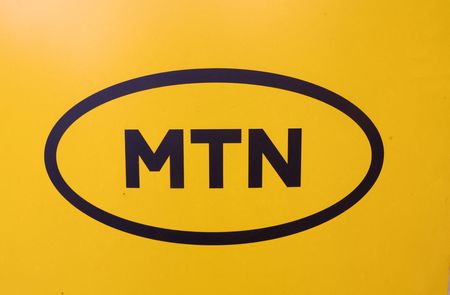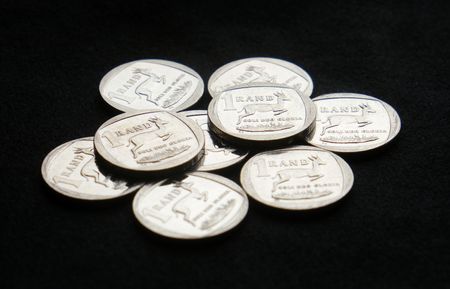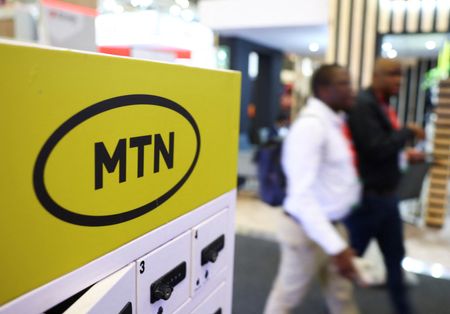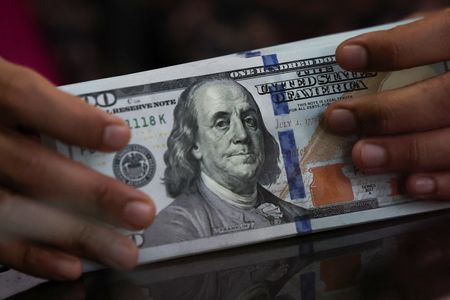By Wayne Cole
SYDNEY (Reuters) -European shares and the U.S. dollar wobbled on Monday ahead of what is likely to be an eventful week for U.S. interest rate policy, while oil prices were subdued as risks to Russian supplies seemed to fade somewhat.
The pan-European STOXX 600 index was little changed in early trading after hitting its highest level since March on Friday, while the MSCI All Country World Index hovered close to the record high touched last week.
Earlier in the Asian session, a cautiously risk-on mood saw indices in Japan and Taiwan make record peaks, while a gauge of Chinese stocks reached its highest level in a decade.
Investors are bracing for U.S. President Donald Trump’s meeting with Ukrainian President Volodymyr Zelenskiy and European leaders later on Monday to discuss the next steps to end the war in Ukraine, after Trump’s summit with Russian President Vladimir Putin in Alaska on Friday.
While the summit did not result in an agreement, Trump afterward appeared more aligned with Moscow on seeking a full peace deal with Ukraine instead of a ceasefire first.
The major economic event of the week will be the Kansas City Federal Reserve’s August 21-23 Jackson Hole symposium, where Chair Jerome Powell is due to speak on the economic outlook and the central bank’s policy framework.
Markets imply around an 85% chance of a quarter-point rate cut at the Fed’s meeting on September 17, and are priced for a further easing by December.
“We see three rate cuts in the U.S. this year, and slower GDP growth but no recession,” said Mark Matthews, head of research for Asia at Bank Julius Baer in Singapore. “The combination of those two should allow the rally to continue.”
The prospect of lower borrowing costs globally has underpinned stock markets, and Japan’s Nikkei climbed to a fresh record high. MSCI’s broadest index of Asia-Pacific shares outside Japan added 0.3%, having scaled a four-year peak last week.
In Europe, Germany’s DAX eased 0.3%, dragged lower by Commerzbank, which fell 3.7%. Britain’s FTSE was flat.
SOLID EARNINGS
S&P 500 futures eased 0.1% while Nasdaq futures were flat, though both were near all-time highs.
Valuations have been underpinned by a solid earnings season as the S&P 500 EPS grew 11% on the year and 58% of companies raised their full-year guidance.
“Earnings results have continued to be exceptional for the mega-cap tech companies,” said analysts at Goldman Sachs. “While Nvidia has yet to report, the Magnificent 7 apparently grew EPS by 26% year/year in 2Q, a 12% beat relative to consensus expectation coming into earnings season.”
This week’s results will provide some colour on the health of consumer spending with Home Depot, Target, Lowe’s and Walmart all reporting.
In bond markets, the chance of Fed easing is keeping down short-term Treasury yields while the longer end is pressured by the risk of stagflation and giant budget deficits, leading to the steepest yield curve since 2021.
European bonds also have been pressured by the prospect of increased borrowing to fund higher defence spending, pushing German long-term yields to 14-year highs.
Wagers on more Fed easing have weighed on the dollar, which dropped 0.4% against a basket of currencies last week to last stand at 97.858.
The dollar was flat on the yen at 147.24 , while the euro held at $1.17 after adding 0.5% last week.
The dollar has fared better against its New Zealand counterpart as the country’s central bank is widely expected to cut rates to 3.0% on Wednesday.
In commodity markets, gold bounced 0.5% to $3,343 an ounce after losing 1.9% last week. [GOL/]
Oil prices struggled as Trump backed away from threats to place more restrictions on Russian oil exports, although White House trade adviser Peter Navarro said India’s purchases of Russian crude were funding Russia’s war in Ukraine and had to stop. [O/R]
Brent was flat at $65.81 a barrel, while U.S. crude steadied at $62.81 per barrel.
(Reporting by Wayne Cole, additional reporting by Gregor Stuart Hunter and Ankur Banerjee in Singapore; editing by Shri Navaratnam, Lincoln Feast and Mark Heinrich)

